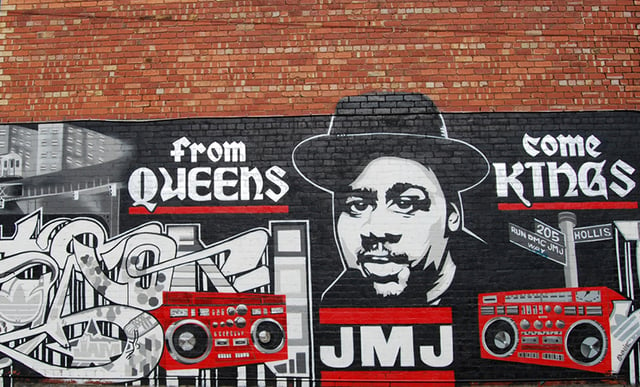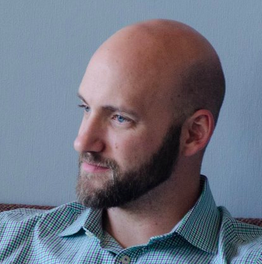
Lyor Cohen is a living legend. From managing acts like RUN DMC, LL Cool J, and the Beastie Boys at Rush Productions, to working with Russell Simmons at Def Jam Records, and eventually CEO of Warner Music Group. He retired from Warner in September 2013, to start his own company.
Last week he gave a talk to a group of Berklee and MIT students about the new company he is founding, 300. The name for this new "Content Company" is inspired by the Spartans of ancient Greece. They changed warfare by being strategic, synchronized, loyal, with great planning and preparedness. Lyor plans to transform the music industry through the same tactics. Here are some of the life lessons, and colorful stories, from his talk.
Find something that someone is screwing up, and do it better.
In the Early 80's, he saw Uncle Jim's Army advertising shows with bright colorful posters. They were importing Rappers from NYC, and getting huge turnouts. But, these shows always shut down at 11pm. So, Lyor started booking after parties. He would hire Hollywood Rock acts, and brought in a rapper headliner from the other shows.
He called Russell Simmons 1000 times before he finally picked up, and would talk to Lyor. Eventually, he hired RUN DMC, and had to borrow $700 from his mother to pay them. That night he made $36,000.
Lyor faced an unusual problem right the beginning. RUN ran off the stage before completing the show. He told Lyor "Those white people are going to attack me!" Lyor calmed him down, explaining that they were just stage divers. RUN spent the rest of the night flinging little white guys off the stage. That was his first introduction to RUN DMC.
Later, Lyor flew out to NYC to join Rush Productions. He showed up to the offices and found them in crisis. RUN DMC was at the airport, about to fly overseas to start their tour. Their road manager was lost on a cocaine binge, and he was the only one in the office with a passport. Lyor had his passport, so he jumped in a taxi to JFK airport. He walked up to RUN DMC and said "I'm your new tour manager."
Takeaway for musicians: When you see someone that knows what they're doing, even if they haven't been doing it long, keep in touch. Networking is absolutely crucial in this business. Also, always have your passport ready.
Arrogance kills.
1982, New York City. Rap was blowing up 40 blocks from Midtown, but the music executives were too arrogant to walk down there and see for themselves. 1982 was an amazing time for New York City. Just at the end of Disco, before the A.I.D.S. epidemic, housing was still affordable. Music, fashion and art were all in walking in step together. Rap saw acceptance by the art and fashion worlds long before it was accepted by the urban media companies. Lyor knew this first hand, as he spent a lot of his time hanging out with Andy Warhol and that whole crowd.
Just by walking around the Village, you would see lines out the door for rap shows. The major labels were too arrogant to see the overwhelming demand for rap. That gave Def Jam 7 years to incubate, gaining the clout, money, influence and following to build their business.
Takeaway for agents, managers and labels: Look around you and take the pulse of what other people are into. Don't let your own judgment be the sole deciding factor. If something has a dedicated following, and you don't get it, find out why their fans are so into it.
Survive the cold.
Kids want two things. Discovery of something hot, and destruction of something else. They want to tear something down. New things start out hot, and gain acceptance from the tastemakers and mavens. That hotness gets spread around to their peers. Once it's too popular, it will inevitably go cold. That's when people will work to tear you down. If you persist, keep working, and power through it, you can survive. Kids want to tear something down, if it's to hard to bring you down, they'll move on to something easier. Surviving is a badge of honor.
Takeaway for Musicians: Persistence is key. Ignore the haters. If you work harder than them, you will outlast them.
Connect with your fans.
"Record labels put the artist and the fan in an environment to be successful, but the artist and the fan need to connect." In Lyor's own words, that's what a record label can do for you. It's up to you as a musician to reach that audience. One of the best parts of being a performer is pulling off that great live show. The audience is on their feet, singing along with your lyrics, and dancing their little feet off. That's not always how it goes. Everyone bombs a show sometime. The key is having more and more great shows, and fewer and fewer bad shows.
Takeaway for Musicians: This comes down to stage presence and professionalism. You may be super talented, with a voice of gold, but you need to pair that with stage presence and the craft to pump up a crowd. That's when life long fans are made. The people at those great shows tell their friends, buy your t-shirts and CDs, and tell everyone they know how awesome your show was. All because you connected with them when you had the chance.









